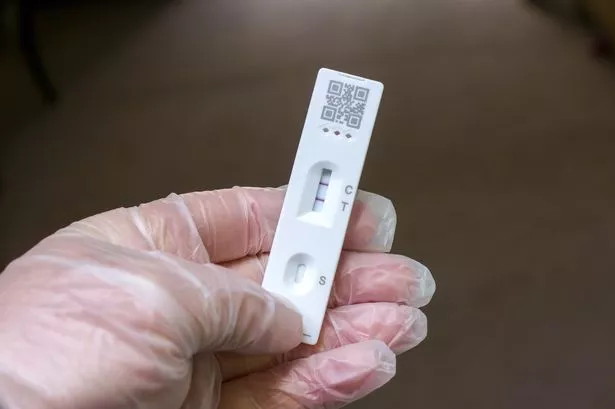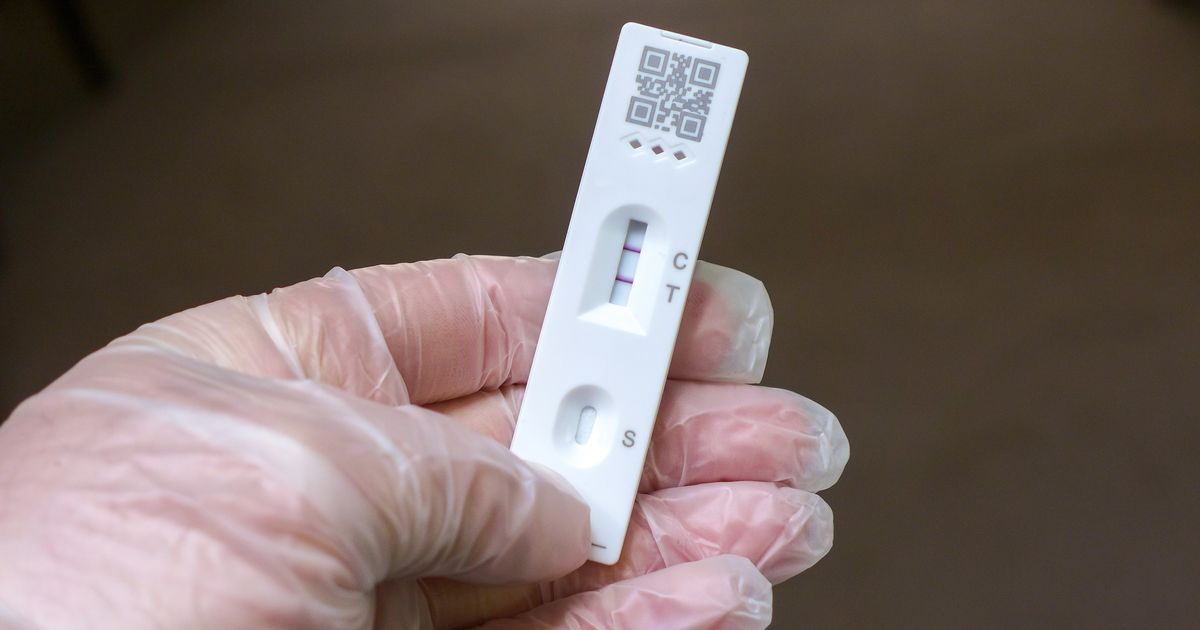Health officials have said the rise in cases is not a cause for concern yet A positive lateral flow test(Image: Getty/Massimiliano Finzi)
A positive lateral flow test(Image: Getty/Massimiliano Finzi)
ITV This Morning’s Dr Sara has spoken about the new Covid variants, with case numbers rising. She has discussed the symptoms people can expect and what to do if you are infected. The variants are known as ‘Nimbus’ and ‘Stratus’.
The latest figures and data released by the UK Health Security Agency last week showed it is seeing flu and Covid-19 slowly begin to rise and rhinovirus experiencing a “sharp rise” of cases. In sequenced samples, the most prevalent lineage was XFG. The strain is called Stratus and it has two variants, XFG and XFG.3.
However, health officials have said the rise in cases is not a cause for concern yet. Dr Alex Allen, consultant epidemiologist of the UK Health Security Agency (UKHSA), said: “It is normal for viruses to mutate and change over time.”
The World Health Organisation has designated the XFG as a “variant under monitoring” and has shared that the public health risk posed by XFG is evaluated as low at the global level.
On This Morning yesterday, Dr Sara said: “We know that Covid cases are rising with some new variants, they’re called Nimbus and Stratus.
“And although these cases are rising rapidly through the UK, it is worth reminding everyone that the symptoms tend to be mild and the cases are rising mostly in line with all the other type of respiratory type of illnesses.”
Dr Sara added: “So the Stratus variant is roughly accounting for 63% of cases and Nimbus 25% of cases and variants are essentially when a virus gets spread from person to person, and it changes slightly each time.”
The health expert said the latest variant has some “tell-tale signs” and one of them is a “hoarse voice” and a “razor blade” sore throat She told viewers and the presenters that people can display any other the other usual Covid symptoms alongside it. These symptoms include headaches, coughing, runny nose and the blocked nose.
Hospital admissions for covid are also increasing, according to UKHSA data. The overall weekly hospital admission rate for Covid-19 this week increased to 2.73 per 100,000 compared with 2.00 per 100,000 in the previous week.
Covid-19 isn’t the only virus that has seen cases increasing this week. Rhinovirus positivity (laboratory surveillance) increased to 14.8% compared with 10.9% in the previous week.
Dr Jamie Lopez Bernal, consultant epidemiologist at UKHSA, said: “Flu and Covid-19 levels are starting to slowly increase. While this is to be expected at this time of year, now is the time for people to come forward for their winter vaccines if they’re eligible, before we start to see more of these viruses in circulation in the winter months.
Content cannot be displayed without consent
“Vaccination offers the best protection against flu, Covid-19 and RSV which is why it’s vital that eligible groups get vaccinated.
“If you have symptoms of flu or Covid-19 such as a high temperature, cough and feeling tired and achy, try to limit your contact with others, especially those who are vulnerable.
“If you have symptoms and need to leave the house, our advice remains that you should wear a face covering. Washing hands regularly and using and disposing tissues in bins can reduce the spread of respiratory illnesses.”

